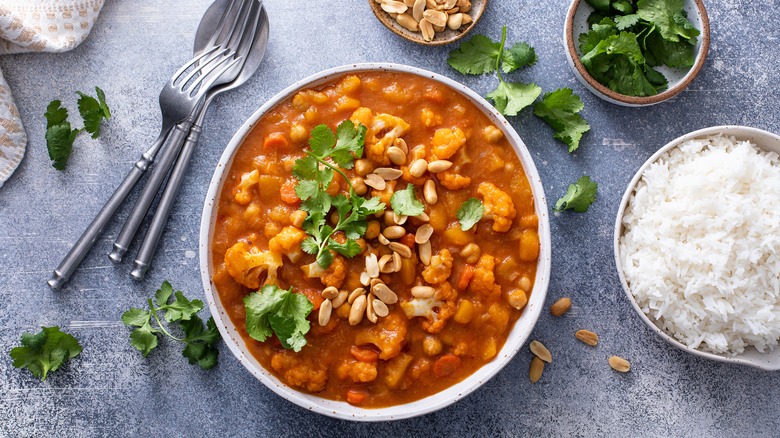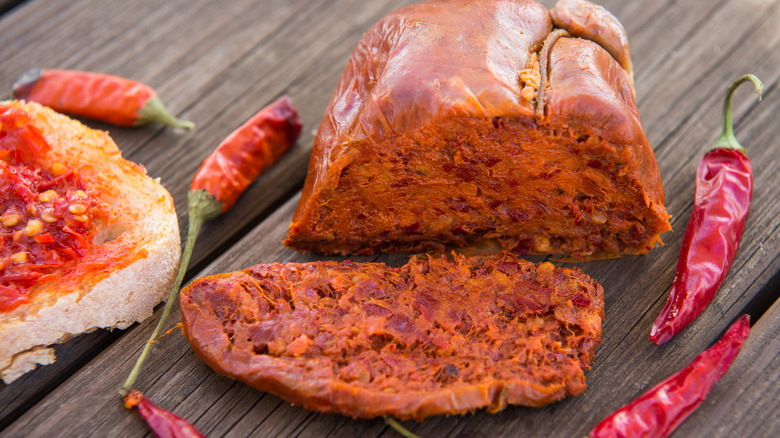'Nduja Is The Pork Paste Your Stews Have Been Missing
It's always a wonderful thing when a cuisine you think you know well reveals a new ingredient to you, and few breakthrough foods have been as welcome in recent years as Italy's 'nduja pork spread. Once little known in the U.S., 'nduja can now be found on pizzas and charcuterie platters in trendy spots all over the country. Of course, it has long been popular in Italy, where it's been an affordable staple of Southern Italian cuisine for generations. 'Nduja is popular for its mixture of spreadability and pungent, spicy flavor, as the sausage combines ground pork with the robust heat of another Southern Italian staple, Calabrian chiles. That mixture of peppery taste and pasty texture means 'nduja can be easily mixed into pasta sauces for a spicy kick. It can also be spread as a topping on sandwiches or used as a powerful way to upgrade dishes like mac and cheese. Another great spot you can use 'nduja that you might not have thought of yet is stews.
There are some go-to ways of boosting the flavor of soups and stews, like a handful of fresh herbs or a dash of vinegar for acid, but 'nduja's unique profile means it can add a bunch of welcome elements all at once. The spice is the obvious benefit — 'nduja can bring the same kind of heat you get from hot sauce or chili crisp — but the meaty, umami notes and the fat of the pork are where things get truly transformative.
'Nduja can give your stew a rich, fiery finish
The incredibly rich flavor that 'nduja brings to stews comes from the specific composition of the sausage. Unlike salami and most other charcuterie, 'nduja is primarily fat not meat, which is how it gets so spreadable. The Calabrian chiles also make up around 30% of the mixture, so it's far spicier than other peppery salumi. There are even some 'ndujas which are smoked, adding an extra layer of rustic complexity. There aren't many meats that pack in this much flavor before you ever lay a hand on them.
There are some obvious stews where the Italian specialty would taste great, like adding it to an old-fashioned beef-based recipe, but it may be most useful in vegetable heavy concoctions where it can add a hearty pork undertone with only a little actual meat. A simple pinto or spicy black bean soup often gets a dollop of lard to add richness, which 'nduja can do while also bringing way more of its own flavor notes to increase the depth. Mediterranean favorites like Moroccan chickpea stew or lentil soup will be even more satisfying with a tablespoon or two of 'nduja mixed in at the end of cooking. You can even give another famously porky broth, ramen, an Italian-fusion twist. 'Nduja is the kind of surprise addition that can totally transform a dish and have everyone asking, "What is in this?"

